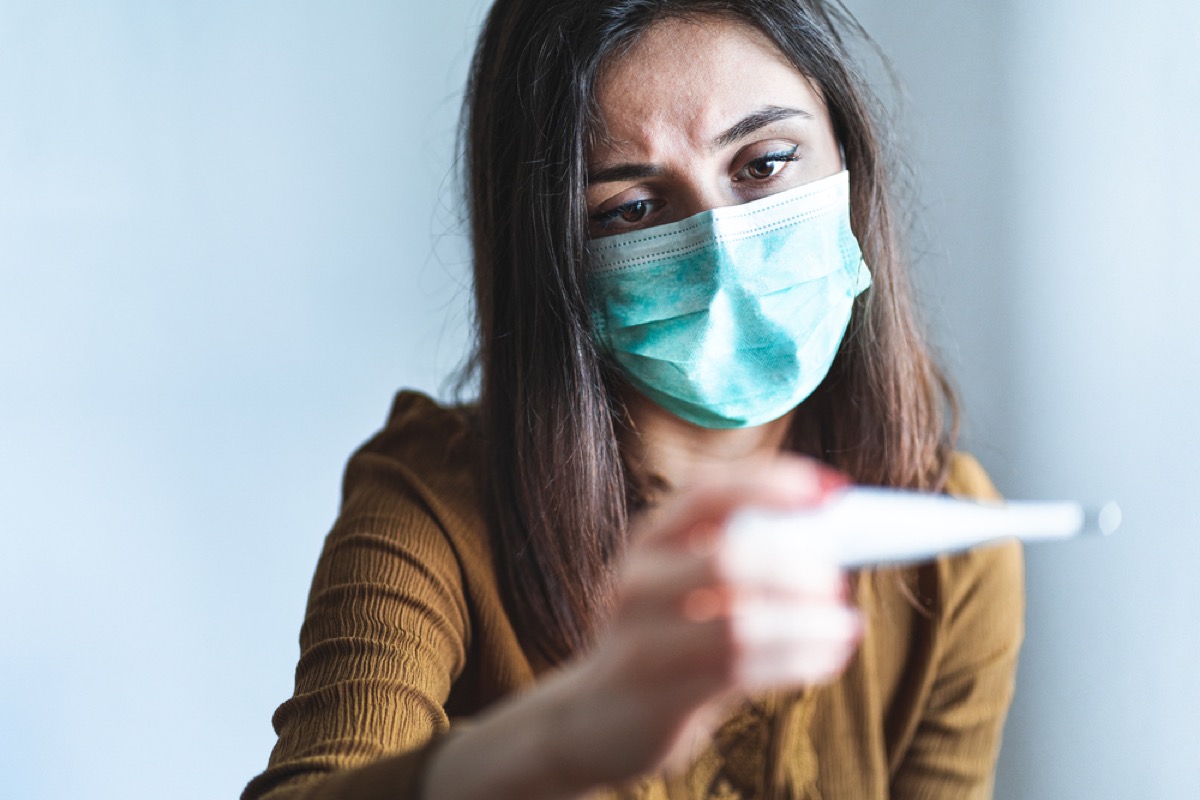According to The New York Times, doctors often don’t test for flu during flu season, instead assuming that patients who present with characteristic flu symptoms have the virus. In 2020, however, that will have to change. Because flu symptoms and coronavirus symptoms can be so similar—and because treatment for these viruses is so different—doctors will have to test for both, potentially causing a delay in testing results. “The flu season is a bit of a ticking time bomb,” Amanda Harrington, PhD, the medical director of microbiology at Loyola University Medical Center, told The New York Times. “We are all waiting and trying to prepare as best we can.” RELATED: For more up-to-date information, sign up for our daily newsletter. There are several problems that could arise from doctors ordering twice as many tests on their patients, especially given the existing delay in COVID testing. Not only could it take longer to process both coronavirus and flu tests, but there could also be supply chain issues resulting in fewer available tests overall, given that similar components are necessary to create both tests. The problem with a lag in test results is that it can make those results functionally useless when it comes to contact tracing, self-isolation, and other efforts at slowing the spread of the virus. As Anthony Fauci, MD, director of the National Institute of Allergy and Infectious Diseases (NIAID), explained in a July appearance on CNN, “The time frame from when you get a test to the time you get the result back is sometimes measured in a few days. If that’s the case, it kind of negates the purpose of the contact tracing.” During that time, the infected person could already have unknowingly spread COVID to those around them. A delay in results for coronavirus and flu tests could be even more dangerous, particularly given that the viruses are treated differently. As The New York Times notes, “Flu viruses and coronaviruses differ in many ways, including how they spread, how long they linger in the body and the groups they affect most severely.” It’s more important than ever to know if a symptomatic person has been stricken with COVID-19 or the more common flu.ae0fcc31ae342fd3a1346ebb1f342fcb And doctors aren’t sure what the consequences could be if a patient contracts both viruses simultaneously. “No one knows what happens if you get influenza and COVID [at the same time] because it’s never happened before,” Pennsylvania Secretary of Health Rachel Levine, MD, said at a recent press conference, CNN reported. In the meantime, health experts are urging the public to get a flu shot. While the vaccine will not protect people from COVID, it can at least reduce the likelihood of getting the flu during what could be an especially dangerous flu season—with the potential for limited and delayed testing. “My biggest message is, get the flu shot. If no other year, get it this year,” Baltimore City Health Commissioner Letitia Dzirasa, MD, told the Baltimore Sun. “Both viruses together could really be a challenge for the health care system, and the more we can reduce one virus—in this case, the flu—the better.” And for more ways to stay healthy, check out Dr. Fauci’s Top 10 Tips to Keep You Safe From COVID-19.
